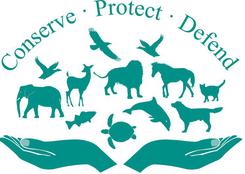The U.S. Animal Law Center
Fight Animal Cruelty
Become a Member
Careers
Our Campaigns
Receive our Newsletter
Membership
Fight Animal Cruelty
Federal
State
Adopt a pet
Our Partners
Animal Transport
Cruelty Database
Become a Foster
Workplace Giving
Our Financials
Urgent Action Alerts
The U.S. Animal Law Center is not a law firm and does not provide legal advice. The U.S. Animal Law Center is a 501(c)(3) not for profit organization.
TM
 | ||||
Animal Cruelty Statistics
Our Animal Cruelty Database
Documented cases of Animal Cruelty cases are on the rise in both Urban and Rural areas. Most reported cases are about dogs and cats.
We are currently building our own database. The database will be a tool to use for enforcement of animal cruelty laws, animal rescue agencies, animal adoption agencies as well as to keep the general public informed.
The FBI will be adding animal cruelty to their Uniform Crime Report, however it will only be categorized four types: simple or gross neglect; intentional abuse and torture; organized abuse; and animal sexual abuse. The FBI will begin collecting data in 2016.
We will further categorize our database with more specific categories. We are collecting our data now.
To help us update our database.
Please donate to The U.S. Animal Law Center.
Legislation
The analysis of data collection aids in the writing and passage of laws that help to protect animals in various different industries. The collection of data aids in passing laws about animal testing, product safety, animal abuse, just to name a few.
Prosecution
Animal abuse is a predictor of future crimes. Prosecutors are prosecuting more crimes each year with the enactment of new laws.
Why is keeping statistics on animal issues is so important?
Our motto is
"Accountability is the first step to change"
Thru gathering statistics we can analyze data about species populations, habitats, euthanasia rates, disease, cruelty rates, sheltering rates, just to name a few. Analyzing data is critical to making changes and resolving animal issues.
It is also critical that all organizations work together to gather statistic the help move the field of animal advocacy forward.
Species Protection
At our own hands, species extinction is rapidly increasing. Collection of data is important because it allows us analyze the data and to then create programs to avoid extinction. Every animal has its job to do to keep our environment functioning, There are consequences to changing a habitat or extinction on a species. One of the consequences is that the food chain will be disrupted affecting animals and humans alike.
The United States has several acts that help keep our animal species from being extinct. The Endangered Species Act, (ESA), The Clean Air and Clean Water Act, The Lacey Act, Migratory Bird Conservation Act, Eagle Protection Act just to name a few.
Food source protection
By collecting data we can assist in marine management and rebuilding of fish populations.
Human Protection
Medicines have been derived from the byproducts of animals. These medicines then are used to control and cure diseases.
We analyze statistics so that we are able to avoid the destruction of the habitat and the species and
thereby continue to benefit the human species.
When we allow a species to become extinct, we all lose.
Sentencing
When attorneys have statistics about first time offenders and repeat offenders, it allows judges to give stronger sentences and keep offenders away from animals in the future.











